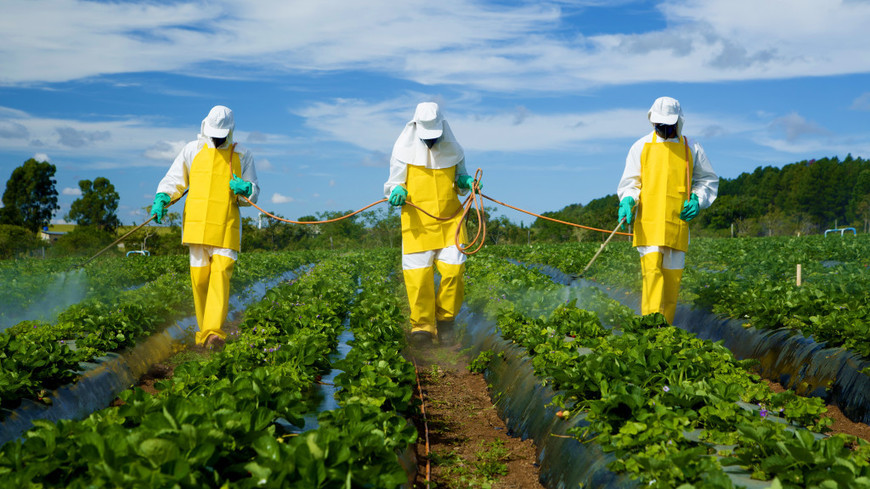Since 2013, Brazil has been thought to be the world’s biggest consumer of pesticides, but there are many ways to measure that. “In terms of sales value, Brazil is, by far, the leader of this ranking,” says Alan Tygel, coordinator of the Permanent Campaign Against Pesticides and for Life, an advocacy network composed of more than 100 Brazilian organizations standing up for agroecology in Brazil. “In terms of quantity, Brazil is probably also the champion, although there is no reliable data from the [United] States, its biggest ‘rival’ in the pesticide race.”
Bolsonaro has scoffed at the notion that such chemicals are poison, and said “it’s impossible to feed the world without pesticides.” While the formerly ruling Workers’ Party supported agribusinesses, Tygel says, they also paid attention to agroecology. Now that’s changed. “All the policies built to promote agroecology and family agriculture are being destroyed,” he says.
Outside of Brazil, the use of pesticides has declined slightly in recent years, according to U.N. data. In 2012, the worldwide average was 5.9 pounds of pesticide per acre of cropland, and in 2017 that was down to 5.7. At the end of the month, the EU’s ban of chlorpyrifos, which has been shown to harm developing human brains, will come into effect. But in Brazil, that political will doesn’t seem to exist.
“The idea is to convince the population that pesticides are not poison,” says Antonio Andrioli, professor of agroecology and sustainable rural development at the Federal University of the Southern Frontier in Paraná. He says schools and universities may soon be forbidden to use the term “agro-toxic” for pesticides and replace it with “phytosanitary defensive.” Brazil’s Minister of Agriculture Tereza Cristina argues that the release of new pesticides will benefit the environment, as they’re likely to be more efficient and thus used in smaller quantities.
Another contingent in favor of pesticides: agrochemical and pharmaceutical transnationals with interests in Brazil, like Bayer-Monsanto, Dow, DuPont and Syngenta. Such companies, along with advocates for pesticide use, have long argued that chemicals are essential to produce enough food for humanity — and with agriculture largely blamed for unprecedented clearing of the rainforest, land yield could be a key concern in years to come. But the companies’ motives aren’t pure either, says Andrioli: “Farmers have become dependent on these companies thanks to the consolidation of transgenic seeds, which are directly tied to the use of pesticides.”
Sourced through Scoop.it from: www.ozy.com



Leave A Comment